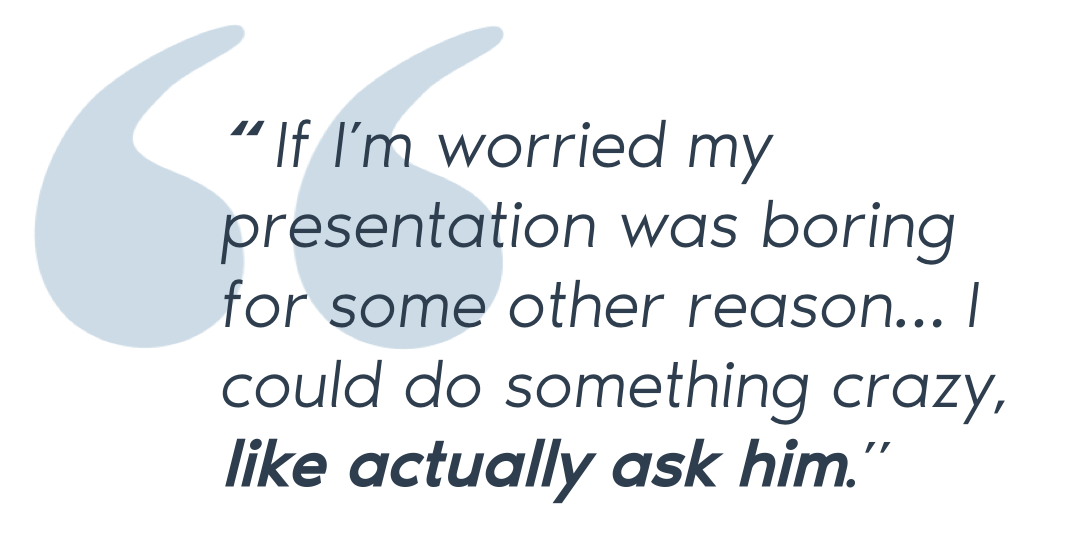*A Heartbreaking Revelation* The Costs of Unconscious Listening
Until twenty minutes ago, I spent my whole life thinking that this thing → * ← was called an “Asterix.” Or maybe an “Astericks.” Either way, I thought the K sound came before the S sound, rather than what it actually is, an S and then K sound: Asterisk.
My first thought was, “Have I really gone my whole life mishearing that word?” I suspect that most people pronounce it correctly, which means my ear has been taking it in is as Ibelievedit to be, rather than as it is.
There’s an old saying: “We don’t see things as they are, we see things as we are.” In Conscious Leadership training, we call this unconscious listening. As long as I’ve been holding a mental model of “asterix” then I’ve been hearing “asterix” rather than “asterisk”. Mishearing a word is a minor reality-infraction, but its implication is significant.
I remember the time I had the heartbreaking realization that when my mom said “I miss you,” she meant “I miss you.”
For over a decade, every time she said those words, I heard this: “You don’t visit or call enough. You should visit and call more. Your choices are hurting me.” Hearing her this way, I would feel guilty as well as unappreciated for all the times I did reach out. I would get defensive about my life. All this together would make me pull back which, I imagined, would cause her to miss me more. When she used to say, “I miss you” I would respond with something like, “Well, I’m sorry, but I’ve got a lot going on.”
It wasn’t until I said something to my dad that he helped me see the truth. When I could finally hear “I miss you” as “I miss you,” or, even, “I love you,” I felt loved rather than ashamed; closer to my mom, rather than farther apart. I could finally respond with something a tad more appropriate, such as, “Thanks mom, I miss you too.”
How often do we hear people through our own filters instead of hearing their actual intentions? My guess is almost always. Seriously. It might affect how we interpret a smile (he likes me!) or that lack of one (she hates me!). Or a question (she doesn’t trust me). Or an instruction (he thinks I’m stupid.) We are constantly interpreting the world around us to match our expectations. “He left the meeting early. He thought my presentation was boring. Of course he did, because I’m boring.” Or sometimes interpret the other way, “She smiled at me. She must like me. Of course she does, I’m hot.”
Today, this asterisk thing really surprised me, and if it weren’t for spellcheck I still wouldn’t know how to pronounce that word. Can you imagine if we had something like spellcheck in life, a belief-checker maybe? It would follow us around underlining our false beliefs with squiggly red lines. I think we would end up so surprised by all of our misunderstandings that we’d give up preconceived notions entirely. Instead, we’d surrender to a state of childlike wonder, open to each experience and person without expectation, judgment, or fear.

He left early means he left early. Period. No asterisk needed. If I’m worried my presentation was boring for some other reason ― maybe I’ve never done this before or maybe I didn’t spend much time on it ― I could do something crazy, like actually ask him.
With a bit of curiosity, courage, and candor, we can be our own belief checkers.
Conscious Leadership Exercise
One of my new very favorite communication practices goes like this:
“When you say X, what I hear is Y.”
For example:
- When you ask me to wash my dish, what I hear is that you don’t trust me to be a good house guest.
- When you say, “go ahead without me,” what I hear is you think I’m impatient.
- When you say, “Will you handle this?” What I hear is that you think I don’t pull my weight.
In some cases, we might be right, “It’s true, I don’t think you pull your weight.” Ok, wellat least now we’re in a juicy, honest conversation. In other cases, we might be totally wrong. “It’s not that I think you’re impatient, it’s that I judge myself for being slow and hate the idea of holding you up.” In both cases, we get to know each other better. BAM! Instant intimacy.
The rate at which we misinterpret each other is probably way off the charts. Through one lens, this can seem like an insurmountable obstacle to authentic communication. Through a different lens, however, it could also be seen as a constant opportunity to listen, reveal, and deepen our connections.
So now I gotta ask, as you’ve been reading this, what is it you heard me say? Is there something you’ve interpreted from this post that would help me know you better? Or, perhaps, if you share it with me, might help us know each other better?
